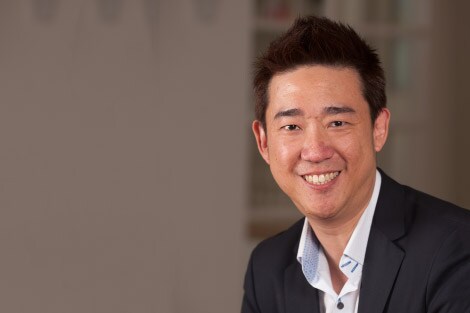Philips: We are here to deliver the next generation


Name: Edward Lim Role: Head of Talent Acquisition, Asia
“For more than 50 years, we’ve made it easier for mothers and their families to receive the care they need with our advanced personal health appliances and medical supplies. Today, we intend to do the same.”
It's all about making key services more accessible
Agriculture and mining might form the backbone of Indonesia's economy, but like many millennials worldwide, the creme de la creme of young professionals are looking towards the tech industry for a brighter, more sustainable career. From fin-tech to e-commerce to ride-sharing apps, both local and international players are hiring furiously. At the same time, Indonesia’s 5% growth1 remains among the highest in large emerging market economies. Yet with Indonesia's cities becoming more prosperous, it's easy to forget that there are a whopping 120 million people living in rural areas who haven’t enjoyed the same development. It's no surprise, development is rarely homogenous.
Healthcare: the country's other forgotten divide
You would have probably heard of the digital divide – according to a report by We Are Social, in 2016 there were just 88.1 million internet users2 (35% of the 249 million population) in Indonesia. But here’s a statistic that’s much more staggering: according to the World Health Organisation (WHO), 190 Indonesian mothers die per 100,000 live births, the highest in Southeast Asia. Many of these cases happen in rural areas, where expectant mothers do not have easy access to hospitals, and instead, rely on under-qualified nurses or village midwives for medical care. As a result, thousands of children will grow up without mothers because of complications during and after childbirth. But it gets worse – approximately 150,000 Indonesian children still die every year3 before celebrating their fifth birthday. Why does that matter? Aside from the enormous social, economic and cultural implications, we believe that there’s still plenty to be done to protect Indonesia’s future.
Philips: We’re here to deliver the next generation
Ride-sharing apps make private transport accessible. Instant messaging helps you get in touch with friends easily. E-wallets give you quick access to your money. At Philips, we might not have apps that are trending on Twitter, but we’re also in the business of accessibility. For more than 50 years, we’ve made it easier for mothers and their families to receive the care they need with our advanced personal health appliances and medical supplies. Today, we intend to do the same. And tech is a huge part of it – we’ve seen firsthand what it can do. At Philips, we recognise that prevention, whenever possible, is better than cure. Good healthcare solutions are integrated, not isolated, which is why we target healthcare needs along the five-stage health continuum – healthy living, prevention, diagnosis, treatment and home care. From helping people to manage their own health to providing solutions for recovery and chronic care at home, we improve population health outcomes and efficiency through integrated care, real-time analytics and value-added services.
Saving mothers’ lives with data
Last year, we launched our pilot MOM (Mobile Obstetrical Monitoring) solution to increase the identification and management of high-risk pregnancies by three-fold. Working with village midwives and other medical professionals, we helped 650 expectant mothers receive the medical monitoring and treatment they needed for a safe delivery. According to current maternal mortality rates, at least one mother should have died from preventable causes related to pregnancy and childbirth. But in our study, not a single woman died as a result of early monitoring and risk stratification.
Educating those who hold the future
In 2016, we also held our first-ever New Parents Class to equip parents with the proper knowledge and practice of breastfeeding. Why is that important? 60% of Indonesian mothers stop breastfeeding prematurely well within the first 1,000 days of a baby’s life – a period that’s crucial to an infant’s development. By highlighting a number of obstacles that hinder mothers from continuing to breastfeed, we expect to help health workers and mothers to find a solution to the establishment of successful breastfeeding in the future.
We want to improve the lives of everyday Indonesians
Our work is important, and there’s plenty to be done. But we can't do it alone.
That’s why we’re looking for individuals like you who share our ambition of giving the next generation a healthy start. In this era of disappearing selfies and fleeting fashion trends, we can’t think of a calling that’s more challenging, engaging or meaningful. Or a legacy that’s more enduring. Whether it’s helping to fight coronary heart disease (the second leading cause of death in the country) or educating parents on proper breastfeeding practices, you can be assured that every day spent in Philips will be for a worthy cause. We have the tools, technology and training to make a difference, and the ability to empower you to live life at your fullest potential. You love Indonesia and want to change the future. Why not start here while building a career for yourself? 1 http://www.thejakartapost.com/news/2017/02/06/indonesian-economic-growth-accelerates-to-5-02.html 2 https://www.techinasia.com/indonesia-web-mobile-statistics-we-are-social 3 http://www.thejakartapost.com/news/2015/09/12/child-mortality-down-significantly.html
